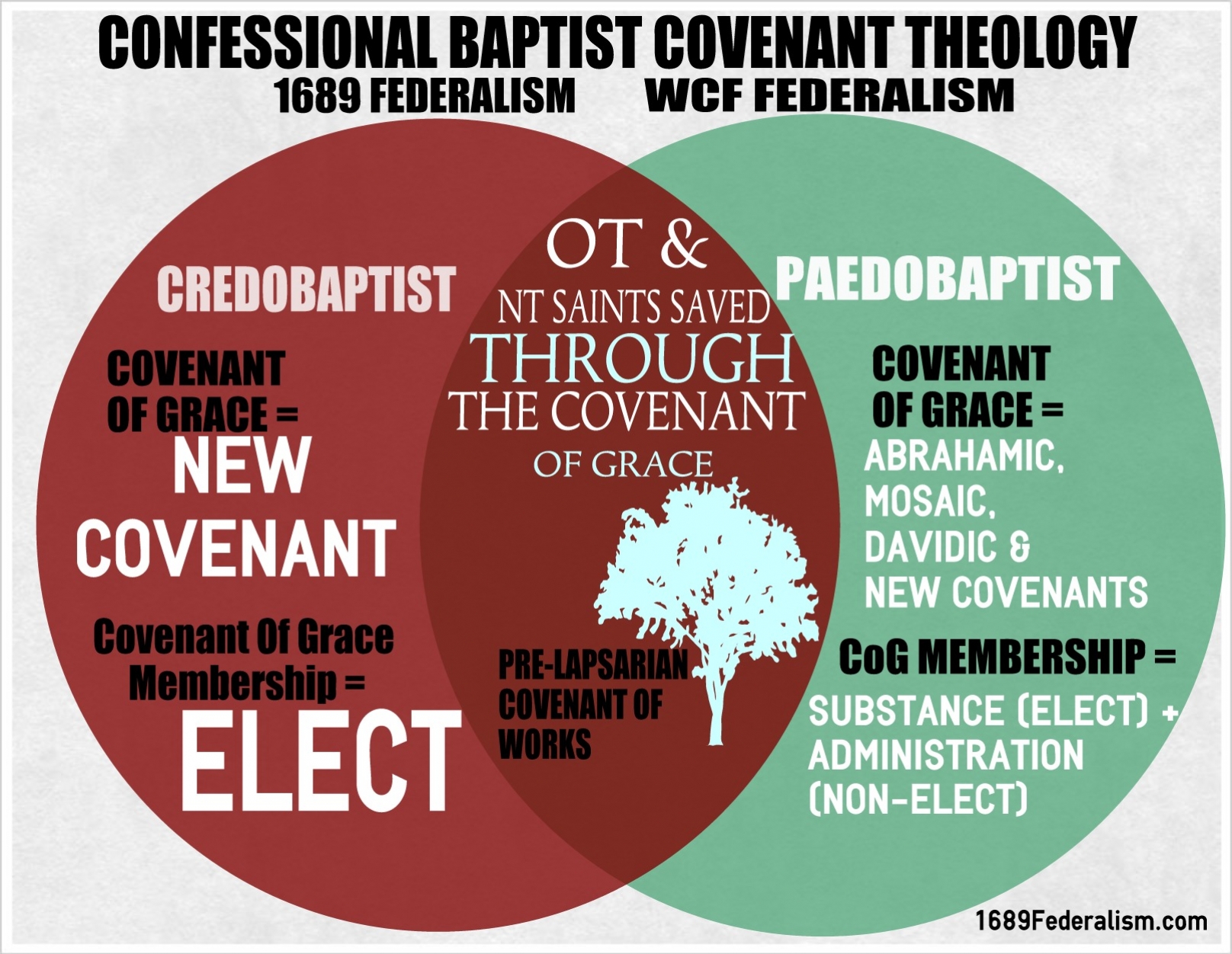1689 Federalism vs Westminster Federalism
A very helpful diagram that I found which demonstrates the understanding of Covenant Theology from the perspective of a 1689 Federalist can be found here. The commonalities and differences between 1689 and Westminster Federalism may be illustrated by a helpful diagram which Brandon Adams has made for 1689Federalism.com.
The Noahic Covenant

For many, when the question “which is the first covenant that the Bible mentions” is asked, the answer which is given is the Noahic Covenant. In a way, this is understandable, since the first mention of the word “covenant” is found in Genesis 6:18, though I have argued for the Covenant of Works being the first covenant established in time above.
God’s Story
After our first parents disobeyed and broke the Lord’s covenant, they were severed from the fellowship of God and all that is good. God, being merciful and gracious in nature, promised to them salvation in the Offspring from Eve (Gen. 3:15). Now man, being severed from fellowship with His good Creator, has become opposed to Him and to what He represents and has sided with the one who questioned the Lord’s authority in the first place (see chapter 6 on Total Depravity). Man has become totally opposed to God and has become wholly evil by rebelling against their good Creator. About the condition of man, Genesis 6:5 is very negative:
The LORD saw that the wickedness of man was great in the earth, and that every intention of the thoughts of his heart was only evil continually.
The Lord was sorry that He made man on the earth and that man had become so wicked. The Lord wanted to blot out mankind which He had created as very good, but which has sought out many wicked and sinful ways away from God (Eccl. 7:29).
Gen. 6:7 So the LORD said, “I will blot out man whom I have created from the face of the land, man and animals and creeping things and birds of the heavens, for I am sorry that I have made them.”
The Fall affected much more than Adam and Eve alone. The Fall affected not only the whole human race but the whole creation itself. Indeed, Paul says that “the whole creation has been groaning together in the pains of childbirth” (Rom. 8:22) and that “the creation was subjected to futility” (Rom. 8:20). This would include all animals, creeping things, birds and fish. The impact of the Fall was so great that even the non-human creation was affected and corrupted by it and therefore, it had to be destroyed. God wanted to destroy all. We rejoice when reading about God’s judgment and then encounter the word “but.” We are thankful for the “but’s” in the Bible. Notice, for example, the “but” in Genesis 50:20 and Ephesians 2:3-5. Likewise, in this case, we see that the Lord’s intention is not to destroy all life and thus undo His creation. Rather, His purpose is to start all over again—with Noah. But a question may be raised about...





